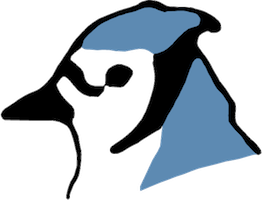

I do not think that university should aim at preparing good programmers but rather at giving a good knowledge that allows to understand programming and programming languages. I found this approach very appropriate and effective. Then, learning a specific language is just a matter of reading a book, looking at existing code, trying to use it on a specific project, and so on. What our professor told us at the beginning of the course was: you should not evaluate this course by thinking about how many programming languages you know at the end of the course, but rather about all the general concepts that you have learnt, how they are related to each other, what they are good for, how they are used in which languages. The course went pretty smoothly and we all found it normal that C and assembly were practical topics that you learn by yourself or discuss in the corridor with other students but were not worthwhile making a course on.ĭuring the third year we had a course on programming languages, in which we studied the different paradigms of programming languages (imperative, functional, logical, object-oriented), we learnt general concepts and implementation techniques, and revised major programming languages (Pascal, C, Modula2, Simula, Lisp, C++, Prolog). The professor did not give us a complete course on C (just a few lessons) because (1) we had already had a course on programming during the first year and (2) he said that every computer scientist who knows the concepts of programming should be able to read a book and learn a new programming language. :-)ĭuring the second year we had an operating system course in which we were asked to do the exercises in C and assembly.
Statistics l.a. 19.1 bluej program java how to#
So the idea was: at class we do the serious theory (Pascal) while at home we learn how to hack (C). So we were reading and discussing about these languages all the time and doing small projects using them on our own. Of course we students knew that the most popular language at the time was C and that there was a new language with growing popularity: C++. Why Pascal? Because it is a clean language designed to teach the concepts of programming without facilities for hacking. The approach followed by our professors was the following.įirst year: introductory course about programming and algorithms in Pascal. I studied Computer Science during the early nineties right before Java came out. Note that I'm not really saying (for example) that there's nothing more to know about Java than the most basic notion of what OOP is - only that that's all that's needed to do what passes for an acceptable job of teaching it. When you get down to it, profs and PHBs have similar criteria. Even though they're hardly what you'd call fast-moving targets, COBOL and Fortran have still both innovated more than Java.

First, decisions are often made much more for the benefit of the faculty than the students. Most universities are a bit different though. Just for example, Texas A&M has Bjarne Stroustrup on staff it probably comes as little surprise to anybody that their curriculum tends to emphasize C++. A few Universities have somebody who's sufficiently well known that many (if not most) decisions revolve around that person's likes, dislikes, opinions, taste, etc.


 0 kommentar(er)
0 kommentar(er)
